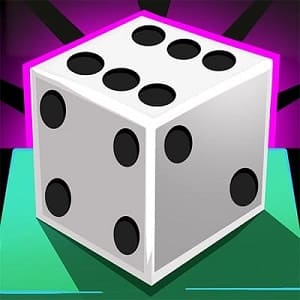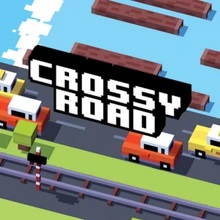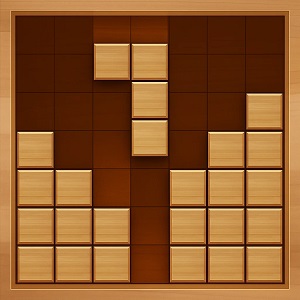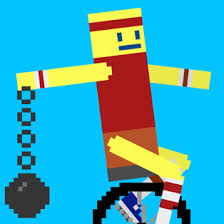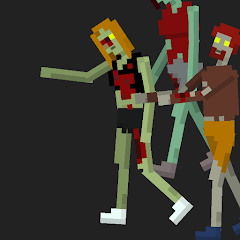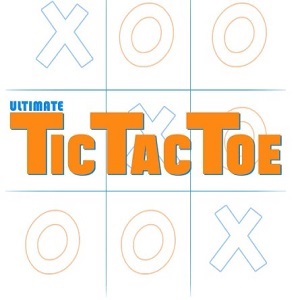
Play on your phone or tablet by scanning this QR code!
Use the mouse to play the game.

Tic Tac Toe
- Technology: HTML5
- Platforms: Browser, Mobile App
- Wiki Page:
Introduction to Tic Tac Toe Unblocked 76
Tic Tac Toe is a classic puzzle and logic game that has stood the test of time. Known to many as noughts and crosses, this simple yet surprisingly strategic game for two players plays out on a 3×3 grid. Players take turns placing an X or O, aiming to line up three in a row, horizontally, vertically, or diagonally.
What makes Tic Tac Toe unique is its ancient legacy. According to sources like Wikipedia, similar versions have been found carved into stone in Egyptian temples and Roman ruins. It may be one of the earliest games humans played, and yet, it's still part of classrooms and lunch breaks today.
Because the original game doesn’t belong to any one developer, it’s now available in countless forms on the internet. Many versions are hosted on a popular website for free online play. Whether you're a kid just learning the rules or an adult chasing nostalgia, Tic Tac Toe is popular for a reason.
I remember playing it on paper during class with my friend, thinking it was just for fun, only to realize later how much it taught me about pattern recognition and anticipating moves.
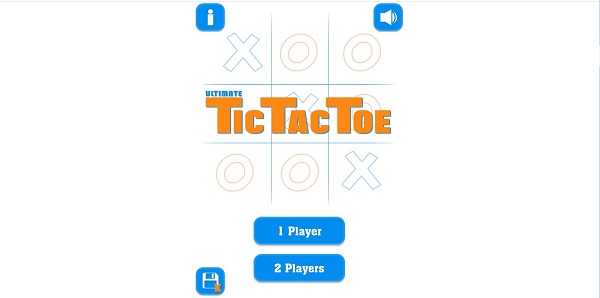
Controls
- Use a mouse click or tap on the grid to place your X or O, depending on the platform (PC, mobile).
Core Gameplay
At its heart, Tic Tac Toe is about sharp thinking and careful planning. The player who goes first places either an X or an O on the grid, usually aiming for the center. Then, both players take turns marking the spaces, each move a chance to outthink your opponent or fall into their trap.
When I play, I always start by watching the corners and middle, especially after losing three games in a row to my younger cousin, who always manages a surprise diagonal row win.
After a few hours of playing both on my phone and laptop, I noticed how my strategy changes depending on the screen size. On mobile, I tend to rush. On PC, I slow down and see the patterns better.
Here’s what a typical round looks and feels like:
-
You take turns marking the spaces on a 3x3 grid
-
The goal: three marks in a horizontal, vertical, or diagonal row
-
No timers, every turn is yours to think carefully
-
Simple tap or click to place an X or O
-
Win by lining up three or block your opponent from doing so
-
If the board fills and no one wins, it's a draw, an oddly satisfying outcome if both played well
As Dr. Emily Jensen, a game-based learning specialist, says, “Tic Tac Toe builds early logic and foresight skills in a low-pressure way.” I couldn’t agree more, especially after those intense sibling matches that end in quiet, victorious grins.
Simple Rules, Endless Possibilities
At first glance, Tic Tac Toe feels almost too easy.
The rules are simple: take turns, place an X or O, and aim for three in a row. But the simplicity is the trick. Beneath the surface lies an intricate game of prediction and control. One wrong move and your opponent wins in three.
After dozens of matches, you start seeing how small habits, like always starting in the center, lead to more draws or wins over time.
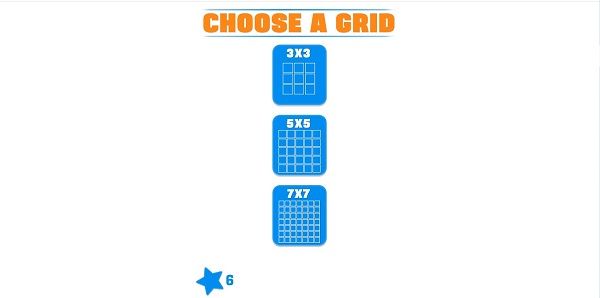
Multiple Versions Add Variety
Whether you’re playing on a computer, tablet, or even an old phone, there’s a version of Tic Tac Toe that fits. Some free online platforms even offer grid expansions like 5x5 or 7x7, changing the flow of the game entirely. With more spaces and no time limits, you're not just reacting anymore. You're playing chess on a tic-tac-toe board.
Smart AI and Human-Like Opponents
Modern versions include different difficulty levels. The easy mode mimics casual play, while the hard mode feels like you're going up against a machine trained in decision trees. Some AI are programmed using effective counter-strategies based on meta-game data, ensuring that even seasoned players have to stay sharp.
No Download, No Barrier
Most versions are playable online for free with no download needed. That means you can hop into a quick game from class, on a break at work, or while waiting for your ride. It's perfect for lightweight fun without sacrificing mental engagement.
Strategies, Tips, and Difficulty Curve
Tic Tac Toe may be simple to pick up, but winning consistently takes more than luck. Behind each move is a layer of problem-solving that even professional educators use to teach logic and foresight.
Whether you're a first-time player or someone who's logged hundreds of games, these tips can sharpen your approach:
-
Start in the center: The first player should always aim for the center space. It gives access to the most potential lines to win.
-
Place in the corners if the center is taken: Corners offer more paths than edge spaces and help set up multiple threats.
-
Always block: If your opponent is about to align three of their marks, place your symbol to stop them. A single missed block can end the game instantly.
-
Use the “fork” tactic: Create two winning paths at once. This forces your opponent to choose which one to defend, leaving the other open.
-
Think two moves ahead: Anticipate not just your own win, but how to prevent theirs.
-
Study advanced tactics: Wikipedia and top puzzle forums confirm that with perfect play, every match ends in a draw.
-
Avoid mistakes: Common slip-ups include ignoring the center, forgetting to block, or repeating the same failed strategy.
-
Learning curve: It’s easy to learn but takes time to master. As Game Theory Online put it, “Every player thinks they’ve mastered it, until they lose to an 8-year-old.”
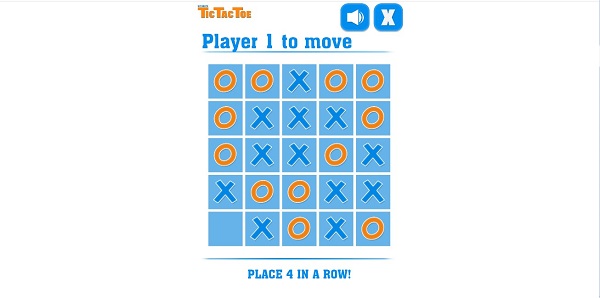
Trivia, History & Educational Value
The game we now call tic-tac-toe has surprisingly deep roots. Historians trace its origin to Ancient Egypt and Rome, where similar grids were carved into stone. During the Middle Ages, it evolved into magic squares, believed by some secret societies to hold mystical significance.
The name itself shifted over time, from "Tit Tat Toe" to its current form. In 1975, the game was famously used in MIT’s Tinkertoy computer demo to showcase early artificial intelligence, proving a wooden machine could follow perfect strategy.
Today, many teachers use tic-tac-toe as an educational tool. It teaches strategy and logic, and demonstrates foundational ideas in game theory and finite-state machines. According to Wonderopolis and MIT archives, it's not just a childhood game, it's a window into how computers, and even the human brain, think.
FAQs
What are the basic rules of Tic Tac Toe?
Two players take turns placing Xs and Os on a 3×3 grid. The goal is to line up three of your marks before your opponent does.
How do I start a game of Tic Tac Toe?
Choose who goes first (usually X), then play by placing a mark in any open space. Alternate turns until someone wins or the board fills.
What is the best first move?
The center square is the strongest opening, what is the best first move often depends on how your opponent reacts.
How can I win?
Plan ahead, block threats, and create a “fork” to set up multiple winning options. The game’s strategy is simple but sharp.
What should I do if the opponent is about to win?
Block them immediately by placing your mark in the needed square. One move can save the round.
Why can’t I place my mark?
You can only play in an empty space and only on your turn. Refresh the browser if there’s a technical glitch.
Can I play it on my phone?
Yes, most free versions are mobile-friendly. Try sites like Poki or CrazyGames for easy access.
How do I find players online?
Choose two-player mode or join a multiplayer lobby on free browser platforms. You can also invite friends via game links.
How can I improve?
Review your matches, learn common strategies, and watch short tutorials. Community sites like r/boardgames have great tips.
Can I track my stats?
Some versions let you track wins, losses, and draws. Look for a settings or stats section on the platform you use.
Conclusion
Tic Tac Toe is more than just a simple game, it’s a quiet teacher. For casual gamers, children, and anyone who enjoys logic puzzles, it offers a quick, thoughtful experience that never gets old. It's completely accessible, works on almost any device, and is easy to learn in minutes.
Whether you’re using it as a good mental warm-up before work or just filling time on the bus, it delivers value without complexity. As game designer Mark LeBlanc once said, “The most timeless games are the ones that teach without talking.” Tic Tac Toe does exactly that, quietly sharpening your mind, one turn at a time.





